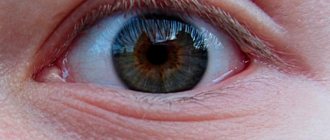Depression is a mental condition characterized by depressed mood, pessimism, lack of enjoyment of life and favorite activities, and difficulty remembering and concentrating.
According to the World Health Organization, the disorder affects more than 300 million people in the world. One of the main causes of the disorder is stress: negative events in life (breakup, loss of a job or valuable property, death of a loved one), long-term conflicts with relatives, colleagues, acquaintances. Women of any age are especially susceptible to such reactions.
Important
Our body can endure a lot. But if the negative impact of the environment exceeds its capabilities in strength or lasts too long, the body cannot withstand it, reserves are depleted - the person gets sick. Rest will not help here; treatment is necessary.
Stress is usually understood as a nonspecific protective reaction of the body, which is caused by the influence of physical (pain, cold, infection) or psychological factors (personal experiences, changes in the usual way of life). With prolonged exposure, the stress response loses its protective properties and begins to have a damaging effect on the body.
Due to a strong negative event (so-called psychotrauma) or chronic stress, psychogenic depression develops. It becomes difficult for a person to work and concentrate, he quickly gets tired, the world around him becomes gray, dull, joyless. Both your career and personal life suffer - the stress only increases. Therefore, it is important not only to diagnose in time, but also to know how to overcome stress and depression so as not to trigger the disease and not lead to hospitalization.
Treatment of anxiety
To get rid of an obsessive state, psychologists and psychotherapists use a treatment complex consisting of consultations and, if necessary, the use of medications. Treatment development is carried out on a purely individual basis and depending on the type of anxiety disorder.
When the condition worsens, medications are prescribed. Depending on the symptoms manifested, several groups of tablets can be distinguished:
- Psychotropic substances - tranquilizers. Help relieve panic and constant feelings of tension. You can also get rid of suicidal intentions, as well as reduce aggressive behavior
- Antidepressants. Restores a stable emotional background, eliminates possible anxiety states and exacerbations
- Neuroleptics. This is relevant if the patient is in an inadequate condition. The effects of drugs are carried out on certain areas of the brain, which help to control the situation and show rationality in thinking.
- Sedatives. They have a calming effect, help reduce nervous tension, normalize sleep, and reduce the level of excitability.
- Nootropics help maintain the patient’s performance at the proper level, and also promote normal blood circulation
- Beta and alpha blockers. They help deactivate the receptors that perceive adrenaline. Helps improve the functioning of the autonomic nervous system.
Psychotherapy is an integral part of treatment. To do this, psychotherapists use various techniques, depending on the complexity of the disease and its progression. For treatment, hypnosis is used as an auxiliary method.
Treatment of anxiety in adults
The treatment program is developed individually, depending on the patient’s condition. So, for example, for some people it is enough to carry out persuasion techniques, as a result of which their condition significantly improves, but in advanced situations it is simply impossible to do without the use of medications.
Rational type beliefs often involve the use of psychotherapeutic techniques. In addition, the specialist constantly accompanies the patient, and also teaches how to cope with emerging exacerbations and interact normally with other members of society.
As with an anxious depressive state, many patients may be prescribed antidepressants, antipsychotics, and nootropics.
It is important to note that the patient’s work on his own condition is no less important. You can do breathing exercises or yoga, and walk in the fresh air as much as possible. It is not recommended to abuse alcohol or smoke cigarettes, as this reduces the effectiveness of treatment.
Anxiety in children
Psychologists and psychotherapists work with children at any stage of anxiety development. However, often one or both parents are included in the process to help improve and speed up the restoration of the child’s normal condition. And although an individual treatment plan is developed for each child, the general scheme is as follows:
- Psychotherapy. Typically, cognitive behavioral therapy is used to work. As a result, the child must learn to cope with assigned tasks and stressful conditions.
- Family psychotherapy. To eliminate the anxious state as quickly as possible, not only individual techniques are used, but also work with entire families and proper monitoring of the condition by a psychologist or psychotherapist. If there are difficulties in contact between family members
- The use of medications is possible only if the child cannot cope with anxiety even with the support of a psychotherapist. As a rule, anxiolytics are extremely rarely used under the age of 18 years.
Treatment of anxiety during menopause
Menopause is a transitional state of the female body as a result of hormonal changes. As a result, not only pathological changes in the functioning of the body, but also in the emotional state can be observed. The most well-known and popular method is hormone replacement therapy (HRT). However, its use is possible only if you have first consulted with a specialist.
Non-hormonal drugs are also often used to help overcome depression and reduce anxiety. Also one of the popular types of treatment is the use of SSRIs. But the drug often causes a decrease in libido. If side symptoms are diagnosed, then bupropion or duloxetine can be used as a replacement.
Restoring health after stress and psycho-emotional stress
- Seal
Author: Super User Category: Articles by specialists Published June 10, 2016
construction of house walls buy Chinese phones in Ukraine
The concept of mental health is an integral part and most important component of human health. The Constitution of the World Health Organization states: “Health is a state of complete physical, mental and social well-being and not merely the absence of disease or infirmity.” Important to this definition is that mental health is not only the absence of mental disorders and disabilities, but also a state of well-being in which a person realizes his or her abilities, can cope with the normal stresses of life, work productively and contribute to society. In this positive sense, mental health is the basis for human well-being and the effective functioning of communities, because mental health and
well-being are essential to our social and individual capacity as human beings to think, emote, communicate with each other, earn a living, and enjoy life. Given this fact, promoting, protecting and restoring mental health can be seen as vital action around the world.
The level of mental health of a person at any given time is determined by numerous social, psychological and biological factors. For example, persistent socioeconomic pressures, poverty or low levels of education are recognized as risk factors for the mental health of individuals and communities.
There are also specific psychological and personality factors that make people vulnerable to mental disorders. Finally, there are a number of biological causes of mental disorders, including genetic factors that contribute to imbalances of brain chemicals.
Poor mental health is also associated with stress in our lives: rapid social change, the pace of life, stressful work conditions, gender discrimination, human rights violations, social exclusion, unhealthy lifestyles, risks of violence and physical ill health.
Let's look at restoring mental health after stress in more detail. Having experienced another trouble, a person begins to think about how to recover from stress. A few moments after stress leave a destructive mark on the psyche. A person who has experienced stress begins to be haunted by obsessive thoughts, fears, sleep, appetite and other unpleasant things are disturbed. In addition, after stress, various abnormalities may appear in an organism with a low degree of stress resistance:
- cardiovascular system: heart attack, stroke, ischemia, high or low blood pressure, etc.
- gastrointestinal tract: stomach cramps, ulcers, gastritis, colitis;
- immune system - a decrease in its functions leads to easy infection with infectious diseases: FLU, acute respiratory infections, pathogenic flora in the body is activated;
- the nervous system itself suffers - neuroses, insomnia, nervous tics, etc.
— emotional sphere: depression, increased excitability, apathy
- various pains, including headaches, due to spasms of blood vessels in the brain and circulatory system and other disorders.
A lot of scientific works are devoted to these “fellow travelers” of stress. Even the ancient Greeks tried to solve the problem of stress resistance. In their opinion, and we must admit that they are right, the strength of the individual lies not in avoiding stress, but in the ability to recover from it.
In terms of physiological effects on health, there are two types of stress: episodic and chronic.
1. Episodic stress - from a sudden event:
— threat to the life of oneself or loved ones (attack, accident, attack of illness, etc.);
- sudden material loss, or its threat (theft, loss of money, dismissal);
- a reprimand from superiors, especially public;
- scandal in the family, betrayal, divorce, etc.
2. Chronic stress – caused by factors of long-term negative impact. For example:
- threat of layoffs,
- over-busyness;
— information overload;
- long-term conflict at home or at work;
— catastrophic lack of time for current tasks and projects;
- loss of meaning in life.
These two types of stress are fundamentally different in the physiology of their effects, but the methods and means of compensating for them are practically the same. Knowing how to protect yourself allows you to maintain health and, sometimes, saves you from death.
The first type of stress - episodic or acute - from a sudden event - these are all expected and common types of stress. And, as for the threat to life, this factor is inherent in both humans and animals. Those. This factor is provided for in nature, has been well studied in medicine, and methods for compensating for it are known and quite effective. Having been exposed to acute stress, the human nervous system begins to release adrenaline into the blood, thus preparing the person for a fight. All stress factors related to sudden events that require immediate action cause the same, similar biochemical processes in the body and are compensated by the same actions and means.
Chronic stress is generated by civilization and relates only to humans. What kind of loss of meaning could a hare or a primitive man have? Therefore, nature has not prepared anything for us to compensate for it. Adrenaline is not produced under such stress, but destruction occurs. Not as quickly as with sudden stress, but gradually eroding health. Primary targets also include the nervous and cardiovascular systems.
Tips for recovery from stress
Prolonged stress contributes to the occurrence of diseases, initially of a functional nature, and then more serious. For this reason, quick relief from severe stress will help save the body from health problems.
- So, the first way is to drink a glass of water. Not Coca-Cola or tonic, but pure, non-carbonated water. This will help distract and calm down, and will also dilute the blood and compensate for the clotting that adrenaline causes. This way you will avoid blood clots in the cardiovascular system and protect yourself from stroke.
- Breathing exercises. Breathing exercises bring instant results. It relieves muscle and emotional tension, normalizes blood pressure. One of the simplest exercises to recover from stress is to spread your feet shoulder-width apart, place your hands on your belt, and take a slow breath in from your belly. Exhale quickly, sharply, while throwing your arms forward, pronouncing the sound “ha”. At the moment of exhalation, imagine that you are throwing out all the negativity. You can repeat the exercise several times, as needed.
— Immediately after stress, no later than 15 minutes, draw your emotions using colored pencils and burn or tear the “masterpiece.”
— Immediately after stress, it would be nice to take a walk in the fresh air. It is better if this walk is long, allowing you to enjoy the healing air and the beauty of nature.
— To recover from stress, the body needs good, long sleep. After experiencing stress, it is important to relax. This is what sleep is designed to help with. You need to sleep as long as possible so that you get tired of sleep.
— When working independently with a personal post-stress state, you need to mentally understand the situation and sort it out “on the shelves.” Having built the image of the offender, forgive him, do not bear the grudge. Understand that the person who offended you does not even think about you, and you are finishing yourself off with your own experiences. Your experiences are your experiences, and they bring neither relief nor retribution to anyone. To stop self-destruction from stress, replace negative emotions with forgiveness, calmness, and joy. Learn this technique and then in any cases that deprive you of peace, use it.
- Smile more often. Make it a habit to start your day with a smile. During the day, smile at your friends; if smiling is not appropriate, smile mentally. In the evening, as you prepare for bed, smile your most sincere smile at your reflection in the mirror.
“Perhaps the hardest thing to recover from stress is to be alone—every person absolutely needs communication. It affects the restoration of energy and mental balance, brings an undeniable charge of positive emotions to life and takes care of the nervous system, restores memory and healthy sleep, helps to calm down and forget about problems, restore former mental strength and normal appetite. For example, you can have a pleasant time meeting with friends or loved ones. Even if you don’t want to go to noisy events, you should pull yourself together and go to a meeting with your company to relax and unwind with pleasant people you know. This meeting could be some kind of holiday, a joint trip to the cinema or a cafe, a romantic date, or just an evening spent playing board games with your beloved family and children.
— Clean up the house, sort out things in the closet, in the workplace. In a similar way, you can “put things in order” in your head. And it’s much more pleasant to be in cleanliness and order, rather than among chaos.
— After stress, a hobby will help you restore your strength. Surely there is some activity that you have only dreamed of: crocheting an openwork collar, carving a horse figure out of wood, learning to dance tango or swim. Thus, you abstract from stress and set new goals, albeit not on a global scale.
If your efforts do not bring the desired result, you can call the helpline 25 – 99 – 09 or seek help from a psychologist or psychotherapist. Such help in our city can be obtained at the “Psycho-hygienic consultation”, which is located at Surgut, Vzletny proezd 11, reception telephone number for making an appointment is 25-41-12.
Executor:
MM. Pershina
Head of the APO "Pergolodar State Conservatory" of the Khanty-Mansi Autonomous Okrug - Ugra "Surgut Clinical Psychoneurological Hospital"
window installation buy a Chinese phone in Ukraine
- < Back
- Forward >
Symptoms and signs of anxiety in adults
Among the most common symptoms are the following:
- The person remains tense all the time
- Feeling of chills and general physical malaise
- A constant test of excitement
- Panic attacks
- Lack of ability to cope with your own anxiety.
Separately, there are physical aspects that manifest themselves in the form of intense headaches, stiffness in the shoulders and muscles.
Due to constant anxiety, each person begins to experience an independent struggle with his own “I”. The most common fear is a quick death, sweating increases, and the heartbeat becomes much faster.
Treatments for Anxiety
The main method of treatment is psychotherapy accompanied by an experienced psychologist or psychotherapist. In some cases, simple reassurance is enough for the patient to reduce anxiety. If this does not help the person, then medications are prescribed to help restore the patient’s normal condition.
Group treatment for anxiety
The group method of combating therapy is one of the most popular. It is important to note that it has been successfully practiced for many years in the USA and Western Europe. Before taking part in such an event, many people think about how effective it is and what exactly they have to do.
Typically, group therapy based on psychoanalysis is used to treat anxiety. During classes, people actively communicate with each other and understand the experiences. A psychologist at such an event only accompanies the process and tries not to interfere with it unless absolutely necessary. The main idea of therapy is the opportunity for each person to see from the outside their own experiences, reactions to emerging events, as well as interactions with other people.
Taken together, group therapy, along with other conventional treatments, produces excellent results and long-lasting positive improvements.
Manifestations of depression and stress
The main manifestations of stress are anxiety and restlessness. A person is constantly worried, often without adequate reason, “over trifles.” Easily fatigue, sleep disturbance (restless sleep, waking up early before the alarm, daytime drowsiness), irritability are added. It is not uncommon to experience panic attacks, which are characterized by sudden attacks of anxiety and fear.
Only an experienced psychotherapist can make an accurate diagnosis. It is important to determine the type of depression, because each option has its own treatment regimen.
The main symptoms of depression are the so-called depressive triad, which includes:
- low mood, depression, depression;
- mental retardation - lethargy, passivity, taciturnity, lack of emotions, loss of appetite, lack of initiative; thoughts around the same worries, often unfounded feelings of guilt, pessimism;
- motor retardation - severe weakness, a feeling of powerlessness, a person strives to take one position and may not move for days - for example, lying in bed, constantly looking at the ceiling. Some people, on the contrary, do not find a place for themselves - they walk around the room anxiously, wring their hands, and cry.
One of the symptoms that significantly reduces the quality of life of a patient with depression is sleep disturbance. It is characterized by the inability to fall asleep for a long time and short, superficial sleep that does not bring a feeling of rest. Insomnia, stress, depression are manifestations of mental illness and problems in the nervous system. Sleep disturbance should alert you and become a reason to consult a specialist.
Important
Sleep disturbances - insomnia, early awakening - these are often the first symptoms of incipient depression. It’s better to get treatment right away, because then it becomes more and more difficult to work, you don’t want to leave the house, thoughts of suicide come.
Symptoms of stress and depression are often subtle. A person may deny for a long time or not notice that stress is taking away more and more strength from him. Depression and fatigue, irritability and difficulty concentrating are perceived as the norm; a person does not remember that it used to be different. Rest and a change of environment, a diet rich in vitamins will only help along with the main treatment - psychotherapy and medication support.









